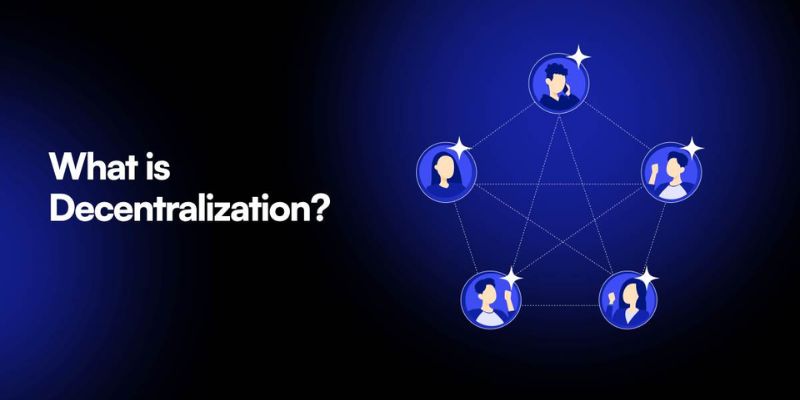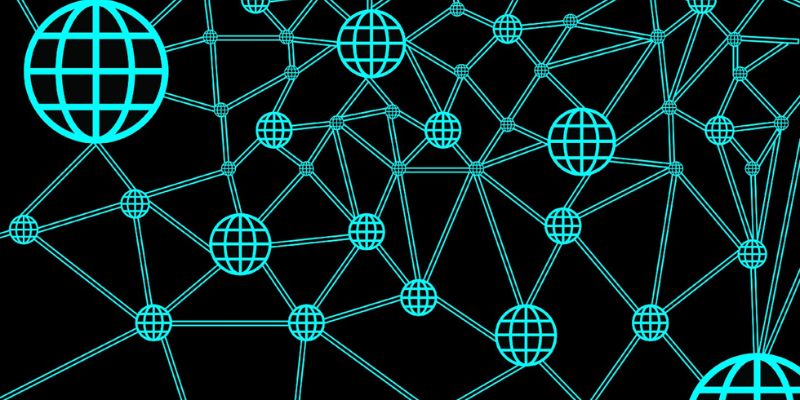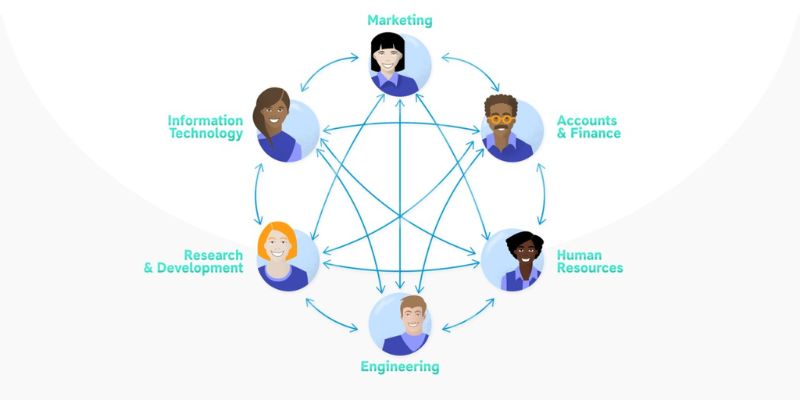You’ve heard the buzz, but what is decentralization? It’s the powerhouse concept reshaping how we think about control and authority. Gone are the days of single points of power. Instead, imagine a world where power spreads out like the roots of a tree, each branch strong and independent. This fresh approach isn’t just for tech gurus – it’s the future for us all. From money to messages, decentralization is flipping the script on how systems operate. Think bigger, bolder, and more democratic. Ready to dive in? Let’s unravel the new era of distributed power together.
Unraveling the Core of Decentralization
Defining Decentralization and Its Core Principles
Decentralization is simple but big. It means no single place has all the power. It’s like having many boss seats instead of just one. We share control. We use rules that everyone agrees on. This makes sure no one person can call all the shots. The heart of it is about giving power back to people.
What are the core principles? Think fairness, trust, and working together. We all play a part. We make decisions together. This stops any one person from having too much power. It’s like a team sport. Everyone needs to play their part for the team to win.
Decentralized systems are a game-changer. They let us connect directly with others. We transfer stuff, like money or messages, without a middleman. It’s a bit like passing notes in class. Only the note can’t get lost or stolen.
Let’s talk about why this matters. Decentralization brings tons of perks. It makes systems tougher, fairer, and more open. Like in a game. When everyone knows the rules and plays fair, it’s more fun. It also means your stuff is safer. When the team protects the goal, it’s hard for others to score.
Decentralized Systems vs. Centralized Frameworks
Now, how do decentralized systems match up against centralized ones? Well, it’s like comparing walkie-talkies to a classroom intercom. Centralized is the intercom. One voice speaks to all. But with walkie-talkies, everyone can talk with each other.
In a centralized setup, the top person has all the control. It’s like having one captain of a ship. But decentralized systems are different. They’re like many small boats, each with its own captain. All boats work together to sail in the right direction.
Why would someone pick decentralized over centralized? Freedom and power spread among many, not just one. This can mean safer, more private ways to handle data. Think about keeping a secret in a group of friends. It’s better if all can keep the secret, not just one.
For business, decentralized means fewer risks and more ideas. It’s like all employees can share their thoughts, not just the boss. This can create better products and services. For governments, decentralization can mean the people get more say. It’s like everyone in town has a voice, not just the mayor.
As for cryptocurrencies, they’re all about decentralization. Like Bitcoin, it’s money that doesn’t need banks. It’s more direct. This can change finance a lot. People can trade money like trading baseball cards. No need for a store to do it.
Lastly, networks that are peer-to-peer are the backbone of decentralization. It’s like a spider web. If one strand breaks, the rest still holds strong. This means systems can handle problems better.
Making sure everyone gets a turn to speak, that’s what decentralization is about. It’s not a trend; it’s the future. And it’s reshaping our world, from how we govern to how we do business.
The Revolutionary Role of Blockchain in Decentralization
How Blockchain Enhances Decentralization
Blockchain and decentralization fit like a lock and key. It spreads power wide across a network. People often wonder, “What makes a system decentralized?” It’s simple – no single point of control. Instead of one boss, many people share control. This is the core of blockchain’s magic.
With blockchain, every member has a copy of the same data. Think of it like a shared document. When one person makes a change, everyone sees it. This makes the network strong and tough. It’s hard to trick or hack because of this. Everyone keeps an eye out for errors or bad actions.
“Are there other perks of blockchain?” Yes! It’s fair and open. All can see the data and trust it. It also cuts costs. Middlemen who once were needed aren’t anymore. This gives everyone a clear path to connect and deal directly.
“Now, what’s a blockchain example?” Bitcoin is a great one. It lets people send money without banks. This money moves on a blockchain. This keeps it safe and private. And guess what? Bitcoin is only the beginning.
Decentralized Applications (dApps) and Their Functionality
Let’s talk about decentralized applications, or dApps. These run on a peer-to-peer network. But hold on, “What’s a peer-to-peer network?” It’s a web of computers talking directly to each other. No bosses or central servers in sight.
dApps can do a lot of things. They can handle money, share videos, and even vote. They work on the rules of the blockchain. This means they don’t need a company to run them. Imagine an app store full of dApps. Each one, using this tech for good.
“Why use dApps?” They offer freedom. You control your data and actions. No one else. They are also hard to stop. If one computer goes down, others keep the app running. Their power lies in unity, making them robust.
In finance, dApps have made a big hit. People loan and borrow, without banks in between. They are new roads for money to move and grow. This is big news for how we think about cash.
“Can dApps face tough times?” Sure, like all things, they aren’t perfect. Growing them big while keeping them speedy is tough. But the smartest minds are on it. The goal? To make dApps for everyone, everywhere.
In closing, blockchain is a big deal for decentralization. Why? It’s safer, cuts out the middleman, and is honest. And dApps, powered by blockchain, change the game. They put power back in our hands. The future is bright, as these tools spread power far and wide.
The Societal and Economic Transformations Through Decentralization
Decentralization in Various Industries
Decentralization is a big deal. It changes how companies and whole sectors work. It lets decisions spread out over many places instead of just one. Think of a tree with many branches; that’s how decentralized systems branch out power. This model affects lots of areas, from how we use money to how we share info.
In the world of money, decentralization in finance is a game-changer. With it, payments move faster because they don’t go through one main stop. It cuts out middlemen, easing trades across borders. This is huge in places without strong banks. Peer-to-peer setups, like with Bitcoin, let anyone send money directly to others.
Health care is also touching decentralization. Now, patients get to control their health data. This means better privacy and choice over who sees their personal info. Governments are paying attention too. They see how these setups make their work better. They are using decentralization strategies to help locals have a say in what happens in their towns.
The Economic Implications and Advantages of Decentralized Organizations
The way we make and share things is impacted by this as well. Decentralization in business means companies can work together without a big boss. This opens the door for new ideas and growth. Groups called DAOs, or decentralized autonomous organizations, lead this idea. They run on votes from each member, not a single leader.
The wins here are big. These setups bring more trust because they’re open and everyone can see what’s happening. They are harder to break, too. If one part gets hit, the rest can keep going. This decentralized resilience makes the whole network safe and keeps everyone calm.
On top of that, there’s a boost to creativity. When people from all over can pitch in, we get fresh solutions we might not have thought of before. This makes things better for us all. Plus, it builds a fair space where everyone has a voice. It protects you, me, our choices, and our power to make change.
In summary, benefits of decentralization are all about sharing power across the map to bring trust, safety, and fresh chances for us all. It’s not just a cool thought but a real path others are walking down today. From making payments without waiting for a bank’s nod, to shaping our towns, decentralization is showing its power to remake our world. It’s a tide that’s only going to grow as we all move forward together, building and sharing in the wealth of our joint efforts and ideas.
The Future Path of Decentralization: Challenges and Innovations
Overcoming Barriers and Measuring Success in Decentralized Networks
We all hear how decentralization can change our world. But what barriers stand in the way? And how do we know if it’s really working?
One big hurdle is trust. In systems like blockchain, we spread out data across many computers. This means no single point can fail and let the whole system down. The trick is getting people to trust this new way without one big player in charge.
Another issue is how complex it is. For those used to a central authority, this shift feels like a jump into the unknown. Teaching and learning are key here. We must make these ideas clear for everyone.
Now, how do we measure success? We look at several things. We check if the system is fair and if everyone can join. We also check if it’s safe from attacks and can handle lots of work. Success means people trust the network and its rules.
Let’s not forget about scaling. As more folks join, can the system grow to support them? This is vital for a thriving network.
The Outlook for Decentralization in Governance and Autonomous Systems
Looking ahead, decentralization could shake up how we run our communities. Imagine voting or making rules without needing a middleman. That’s where we’re headed with technology like Decentralized Autonomous Organizations, or DAOs.
DAOs let people come together and make choices in a community without a boss. It’s real teamwork making choices that matter.
In government, this means people have more say and can trust that their voice counts. Local leaders can also use these systems to better their towns and cities. It brings power back to the local level.
Decentralization is more than tech talk. It’s a new way to spread power and let people have a real say in their world. Sure, there are hurdles to jump. But in time, it can lead to smarter decisions and more trust.
By breaking big jobs down into smaller chunks, there’s less chance for mess-ups. This can mean big wins for everyone.
So, in a nutshell, decentralization is about spreading out power and making sure everyone gets a fair shot. As we look forward, the goal is clear. Make systems that help everyone and build trust. With smart tech and teamwork, we’re on the right path.
In this post, we dove into decentralization, a key idea shaping our world. We learned what it is and how it differs from usual ways, like old-school, central control. We looked at blockchain and saw its vital role in making systems equal for all. We saw apps that use it and help folks work together without a boss.
We checked how this all changes things like jobs and money and found big pluses when power spreads out. We closed by tackling hurdles ahead and peeking at future changes. Decentralization’s not simple and comes with its own tough spots. But the promise it holds for fairer, more open systems is worth the hustle. To sum up, it’s a game changer. It’s shaping a future where everyone gets a say, and that’s the kind of world worth aiming for. Keep an eye on this space; decentralization is just getting started.
Q&A :
What Exactly Is Decentralization?
Decentralization refers to the redistribution of power, authority, and organizational activities away from a central location or governing body. In a decentralized system, decision-making is spread out among multiple entities or locations, which can increase the efficiency, responsiveness, and democracy of a system. This term is commonly used in various contexts such as government, technology (especially blockchain and cryptocurrencies), and corporate management.
How Does Decentralization Work in Cryptocurrencies?
In the realm of cryptocurrencies, decentralization is achieved through blockchain technology whereby no single entity controls the currency. Instead, transactions and the issuance of new coins are managed collectively by a network. This not only prevents monopoly control but also enhances security and reduces the risks associated with central points of failure.
What Are the Advantages of Decentralization?
The advantages of decentralization include increased autonomy, flexibility, and empowerment of individual entities or branches. It can lead to more innovative solutions, as various units are free to try different approaches to problem-solving. Decentralization can also improve accountability and reduce the chance of corruption, as power is not concentrated in the hands of a few.
Are There Disadvantages to Decentralization?
While decentralization has many benefits, it can also pose some disadvantages. These may include potential inefficiencies due to a lack of standardized processes, challenges in coordination, and difficulties in maintaining a unified strategy or vision. It could also lead to an imbalance of resources, with some areas becoming underfunded or overlooked.
What is the Role of Decentralization in Governance?
In governance, decentralization involves transferring decision-making powers and responsibilities from central governments to local or regional levels of authority. This approach can help to account for local needs and preferences, improve public service delivery, and promote greater citizen participation in government. Decentralization is often a key component in democratic reforms and good governance initiatives.




RELATED POSTS
Blockchain Revolution: Securing Student Records for the Future
Discover the impact of blockchain...
Emerging Consensus Mechanisms for Blockchain: The Future of Decentralized Validation
Emerging consensus mechanisms for blockchain....
Future Of Consensus Mechanisms In Blockchain: Unlocking Next Evolution
The Future of Consensus Mechanisms...
Optimistic Airdrop – Detailed Guide on How to Acquire OP Tokens
This guide provides detailed steps...
What is a Doji Candle? Learn to identify market uncertainty
What is a Doji candle...
Emerging Applications Of Blockchain In The Future: What’s Next?
Discover the emerging applications of...
Unlocking Fort Knox: How SSI Integration Bolsters Your Security Fortress
Unlock Enhanced Security with SSI...
How Blockchain Boosts Educational Equity: A Tech Revolution in Learning
How can blockchain promote educational...
Starknet: A Layer-2 scaling solution for Ethereum
Starknet is rapidly gaining traction...
Crypto Prediction Markets: Can You Outsmart the Future?
Explore the mechanics of decentralized...
Exploring The Different Types Of Consensus Mechanisms In Blockchain
Explore the Landscape of Blockchain...
Launch of Grass Season 2: Exciting Airdrop opportunities
Following the remarkable success of...
Blockchain Meets Education: Revolutionizing Learning Management Systems
Enhance e-learning with blockchain-enabled solutions....
On-Chain Essentials: Unraveling the Backbone of Blockchain Technology
Dive deep into on-chain transactions,...
Phishing Attack in Crypto Uncovered: Secure Your Digital Wealth Now
"What is a Phishing attack...
Economic Bubble in Crypto – 3 Experiences to deal with it
In the volatile cryptocurrency landscape,...